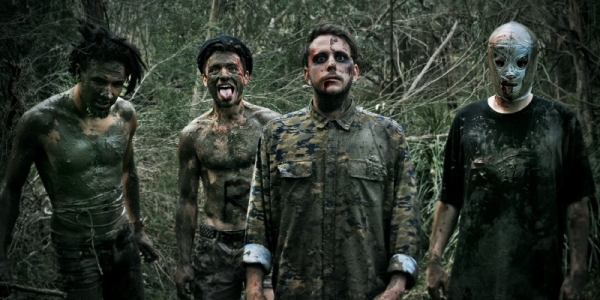“What with the play being biographical, you really have to do a lot detective work to find out exactly who the person was in order to understand their motivations and to really honour them on stage; I have a responsibility to do Rupert Buxton justice,” Armstrong says. “This is totally trivial but it was a discovery that made me laugh. Have you ever heard of a dogcart? In the 1900s they had carts that were pulled by packs of dogs. They must have been cheaper than horses.
“With my work, I quite like to use animals to help develop my characters or even use traits of certain existing characters. With Rupert, I have thrown in a few traits of Kaa, the seductive and manipulative snake from The Jungle Book. One notable thing I have been working hard towards and has been somewhat of a challenge is ensuring that Rupert is likable throughout the play. There are scenes where on the surface he could come across as a manipulative, self-serving, troublemaker, when in actual fact, just below the surface is a deep sadness and a huge need to be loved.
“His actions and methods are quite alternative and a little unusual but he has the greatest of intentions at heart. If I am able to convey all of the above I will be very happy.”
The Death Of Peter Pan may be dealing in themes of same sex attraction but the emotion of the play is truly universal and while these issues are at the forefront of political division right now, The Death… is essentially just dealing with unaccepted love.
“There is a profound line, ‘My heart didn’t come with a book of instructions’ which really struck a chord with me because, of course, who are we to judge what is instilled in some of us from inception and that is not a choice?” he says. “It is amazing to think that almost a century has passed since the events that transpired in The Death Of Peter Pan and yet there are still people who are against homosexuality and the marriage of such individuals. Hopefully this play will help portray love for what it is, a universal force that is without prejudice. Another strong universal element would be the breaking of conventions, rules, and traditions that are forced upon us by society in order to gain fulfilment and true happiness. Rupert knows that he cannot be happy living within these confines so, to the dismay and shock of others, he pushes the envelope.”
Preparation for the play hasn’t been easy for Armstrong and he’s more than thankful he’s able to take to the stage as Buxton. A bout of appendicitis and the emergency surgery that follows such a diagnosis did hols things up a little though.
“Rob Chuter, our director, did not turn his back on me and was, thankfully, able to push the dates back a week,” he explains. “So to anyone reading this who was directly affected by those dates changes, I’m sorry, it was my fault, however the appendix gods shouldn’t get off too lightly. This knocked out a good ten days of rehearsal time and I was reduced to attending meetings via Skype.”
Abdominal surgery aside, Armstrong has also had to deal with the confronting and (literally) exposing nature of this play. “I’m going to be honest, I have never played any sexually confronting scenes like these before, but I’m surprisingly relaxed about it,” he says. “I am totally committed to my work and I knew that it was just a matter of time before something of this nature would arise. Especially when working with Rob who loves to push boundaries and confront audiences.
“As far as the audience, well, there is nothing overly confronting sexually in this play however I have no problem with confronting audiences if it means they’ll be forced to open up themselves for a moment and be vulnerable alongside me. It’s those moments that the audience take with them when they leave the theatre. The most important thing for me is that it serves the play and is not gratuitous.”
With opening just around the corner, Armstrong explains the torrent of emotions he often goes through once those house lights are dimmed. “Speaking from past experience, opening night is always a mixture of excitement and nerves,” he says. “When you’re backstage and you hear all the people fill the theatre it is quite scary because you know that it’s on and there’s no turning back. There have even been times in the past when I have asked myself why I do this to myself, but that’s only beforehand. When I step out on stage all that falls by the wayside. Performing makes me feel alive and very few things make me feel that way.”
BY KRISS WEISS

